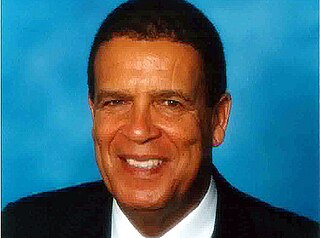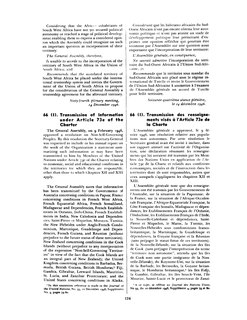
Bermuda is a British Overseas Territory in the North Atlantic Ocean. The Bermuda archipelago consists of 181 islands with a total land area of 54 km2 (21 sq mi). The closest land outside the territory is in the US state of North Carolina, approximately 1,035 km (643 mi) to the west-northwest.

Bermuda was first documented by a European in 1503 by Spanish explorer Juan de Bermúdez. In 1609, the English Virginia Company, which had established Jamestown in Virginia two years earlier, permanently settled Bermuda in the aftermath of a hurricane, when the crew and passengers of Sea Venture steered the ship onto the surrounding reef to prevent it from sinking, then landed ashore. Bermuda's first capital, St. George's, was established in 1612.

The British colonization of the Americas was the history of establishment of control, settlement, and colonization of the continents of the Americas by England, Scotland and, after 1707, Great Britain. Colonization efforts began in the late 16th century with failed attempts by England to establish permanent colonies in the North. The first permanent English colony was established in Jamestown, Virginia in 1607. Approximately 30,000 Algonquian peoples lived in the region at the time. Over the next several centuries more colonies were established in North America, Central America, South America, and the Caribbean. Though most British colonies in the Americas eventually gained independence, some colonies have opted to remain under Britain's jurisdiction as British Overseas Territories.

Bermuda is the oldest British Overseas Territory, and the oldest self-governing British Overseas Territory, and has a great degree of internal autonomy through authority and roles of governance delegated to it by the national Government. Its parliament held its first session in 1620, making it the third-oldest continuous parliament in the world. As part of the British realm, King Charles III is head of state and is represented in Bermuda by a Governor, whom he appoints on the advice of the British Government. The Governor has special responsibilities in four areas: external affairs, defence, internal security, and policing.

The British Overseas Territories (BOTs), also known as the United Kingdom Overseas Territories (UKOTs), are fourteen territories with a constitutional and historical link with the United Kingdom. They are the last remnants of the former British Empire and do not form part of the United Kingdom itself. The permanently inhabited territories are internally self-governing, with the United Kingdom retaining responsibility for defence and foreign relations. Three of the territories are inhabited only by a transitory population of military or scientific personnel. All but one of the rest are listed by the UN Special Committee on Decolonization as non-self-governing territories. All fourteen have the British monarch as head of state.

Sir John William David Swan is a former Bermudian political figure. A real estate developer, a political luminary and a philanthropist, Swan served as Premier of Bermuda from 1982 to 1995.
A Crown colony or royal colony was a colony administered by The Crown within the British Empire. There was usually a Governor, appointed by the monarch of the UK on the advice of the Home (UK) Government, with or without the assistance of a local Council. In some cases, this Council was split into two: an Executive Council and a Legislative Council, and was similar to the Privy Council that advises the Monarch. Members of Executive Councils were appointed by the Governors, and British citizens resident in Crown colonies either had no representation in local government, or limited representation. In several Crown colonies, this limited representation grew over time. As the House of Commons of the British Parliament has never included seats for any of the colonies, there was no direct representation in the sovereign government for British subjects or citizens residing in Crown colonies.
The Bermudian dollar is the official currency of the British Overseas Territory of Bermuda. It is subdivided into 100 cents. The Bermudian dollar is not normally traded outside Bermuda, and is pegged to the United States dollar at a one-to-one ratio. Both currencies circulate in Bermuda on an equal basis.
The United Bermuda Party (UBP) was a political party in Bermuda, which represented itself as centrist party with a moderate social and fiscal agenda. The party held power in Bermuda's House of Assembly continuously from 1968 to 1998, the 47-year-old party was dissolved on 30 June 2011 after the majority of its members joined the One Bermuda Alliance.

The Progressive Labour Party (PLP) is one of the two political parties in Bermuda. At the 18 July 2017 general election, the party won 24 of the 36 seats in the Bermudian House of Assembly to become the governing party. The party was founded in 1963, the first political party in Bermuda, and the oldest still active. It formed government from 1998 to 2012, and again since 2017.

Chapter XI of the United Nations Charter defines a non-self-governing territory (NSGT) as a territory "whose people have not yet attained a full measure of self-government". In practice, an NSGT is a territory deemed by the United Nations General Assembly (UNGA) to be "non-self-governing". Chapter XI of the UN Charter also includes a "Declaration on Non-Self-Governing Territories" that the interests of the occupants of dependent territories are paramount and requires member states of the United Nations in control of such territories to submit annual information reports concerning the development of those territories. Since 1946, the UNGA has maintained a list of non-self governing territories under member states' control. Since its inception, dozens of territories have been removed from the list, typically when they attained independence or internal self-government, while other territories have been added as new administering countries joined the United Nations or the General Assembly reassessed the status of certain territories.

A British Overseas Territories citizen (BOTC), formerly called British Dependent Territories citizen (BDTC), is a member of a class of British nationality granted to people connected with one or more of the British Overseas Territories.

The Governor of Bermuda is the representative of the British monarch in the British overseas territory of Bermuda.

The House of Assembly is the lower house of the Parliament of the British Overseas Territory of Bermuda. The house has 36 Members of Parliament (MPs), elected for a term of five years in single seat constituencies using first-past-the-post voting. Bermuda now has universal voting with a voting age of 18 years. Voting is non-compulsory. The presiding officer of the House is called the Speaker.

General elections were held in Bermuda on 18 December 2007 to elect all 36 members of the House of Assembly. The incumbent Progressive Labour Party (PLP) led by Ewart Brown was returned for a third term, with 22 of the 36 seats of the House of Assembly, with the opposition United Bermuda Party (UBP) winning the remaining 14 seats.

Lesbian, gay, bisexual, and transgender (LGBT) persons in Bermuda, a British Overseas Territory, face legal challenges not experienced by non-LGBT persons. Homosexuality is legal in Bermuda, but the territory has long held a reputation for being homophobic and intolerant. Since 2013, the Human Rights Act has prohibited discrimination on the basis of sexual orientation.
The Militia of the British Dominions, Self-Governing Colonies, and Crown Colonies were the principal military forces of the Dominions, Self-governing colonies and Crown Colonies of the British Empire.
Ann Frith Cartwright DeCouto was a Bermudian politician, lawyer and a member of the former United Bermuda Party (UBP). She served as a member of the House of Assembly of Bermuda 1983 until 1998, which included a tenure as Deputy Premier from 1989 to 1992 under Premier John Swan, as well as the head of several government ministries under the UPI during the 1980s and 1990s. Cartwright DeCouto was perhaps best known as the island's Minister of the Environment, also from 1989 to 1992. In 1990, she enforced a ban on fishing with fishpots in Bermudian waters, a move which was highly unpopular at the time. However, Cartwright DeCouto's ban on the fishpots is now widely credited with reviving Bermuda's fish stocks.
Same-sex marriage in Bermuda, a British Overseas Territory, is not legal. It first became legal on 5 May 2017, when the Supreme Court of Bermuda declared that same-sex couples had a legal right to marry in the territory after a couple filed suit against the Bermudian Government. However, a bill to ban same-sex marriage and establish domestic partnerships was passed by the Parliament in December 2017 and went into effect on 1 June 2018 though same-sex marriages performed before that day remained legally recognised.
Cannabis in Bermuda is legal for medical use and decriminalized for recreational use.











